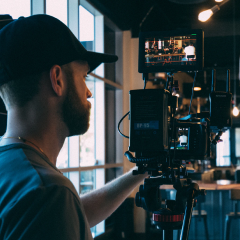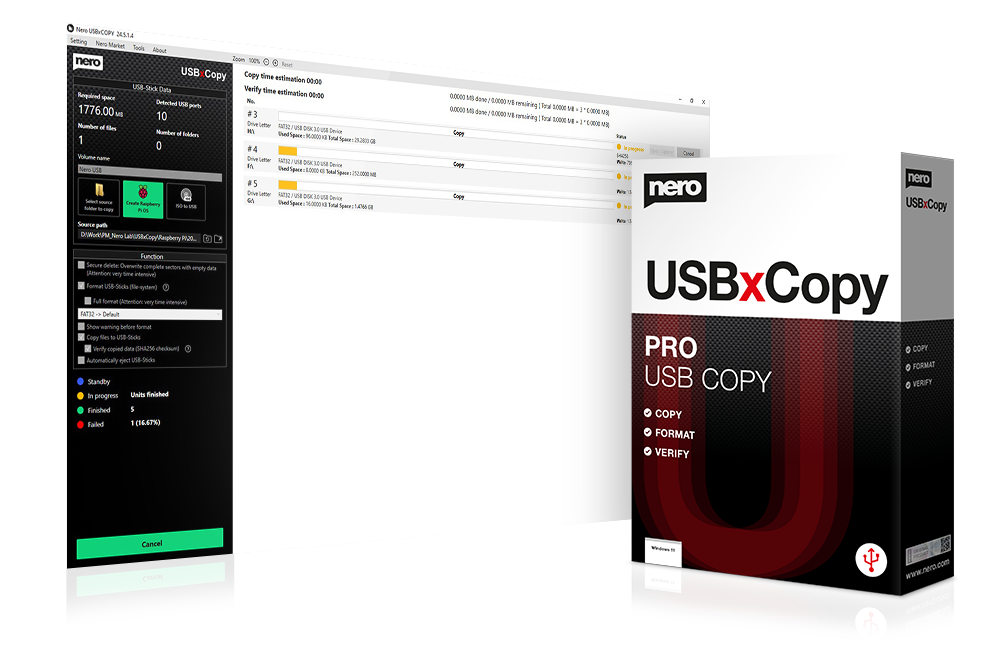![[Updated] In 2024, Decreasing Jello Artifacts in Aerial Filmmaking](https://thmb.techidaily.com/edd57a156bbf7df4d7711f42029b2540d33e03363e3c55cf994eda041a9cd465.jpg)
[Updated] In 2024, Decreasing Jello Artifacts in Aerial Filmmaking

Decreasing Jello Artifacts in Aerial Filmmaking
How to Remove Jello Effect from an Aerial Video
 SwifDoo PDF Perpetual (1 PC) Free upgrade. No monthly fees ever.
SwifDoo PDF Perpetual (1 PC) Free upgrade. No monthly fees ever.

Max Wales
Mar 27, 2024• Proven solutions
When we talk about flight FPV quadcopters then Jello Effect appears like biggest disturbance in the path of quality. This effect results due to vibration influence that is channelled on camera when it starts rocking in air. No matter whether you are a professional or beginner, Jello effect is always your biggest enemy as it does terrible things inside recorded videos that can distract viewers away from actual content. The article below will help you to gain important information about how to remove this Jello or rolling shutter effect from videos.
What is Rolling Shutter
First of all we need to discus about the major terms like rolling shutter effect etc. You might be aware of the fact that sensors can be designed with rolling shutter as well as with a global shutter. This rolling shutter is able to capture footage with better scanning on every part of image due to installed CMOS sensor. Generally, the global shutters are capable enough to manage entire frame at the same time but rolling shutters start scanning from top to bottom and hence they leave various visual artefacts in between. In simple words, it is not able to capture top and bottom portion of shot at same moment hence images appear skewed.
 ZoneAlarm Pro Antivirus + Firewall NextGen
ZoneAlarm Pro Antivirus + Firewall NextGen
What is Jello Effect
As DSLRs usually come with rolling shutters as these shutters are able to follow quick movements that cannot be noticed by users. But the biggest trouble is observed when camera is used to perform quick pans or it has to work with extremely moving subjects same as airplane propellers. These quick pans cause jello effect in clips and images naturally become skewed with loss of details.
Now, you might be thinking hard that when global shutters are able to serve with better quality for this case then why manufacturers are using rolling shutters. There are numbers of reasons behind this: Systme actually follows a trade-off between performance of global shutters and rolling shutters. You will be glad to know that although a rolling shutter creates trouble with distortion and skew but it has ability to provide best results with dynamic range and low light performance.
Further, global shutters are not able to achieve the DR value same as rolling shutters hence they cannot be applied for handheld recording needs, visual effects or for action scenes.
How to Remove Jello Effect from Drone Videos?
1. Use Gimbal
If you want to minimize those micro jitters from your recorded footage then it becomes necessary to use gimbals or stabilizers with your camera unit. You need to upgrade the gimbal vibration dampers for your device so that it can stay stable all the time. It is good to upgrade gimbal uav damper quality as it can completely remove the jello effect from videos.
2. Slow Down
One more trick to manage your videos in air is to slow down your shoots. When you organise slow shutter speeds for your drone camera then it is observed that motion blur can easily mask rolling shutter issues. The rolling shutter effect commonly occurs when drone is moving on high speed and camera is having too many vibrations. It is good to work with 60 fps frame rate to avail best results.
3. Balanced Propellers
If you prefer to use a high quality prop balancer then shots can be easily stabilized. Note that, all props are not pre-calibrated from factory end, once you receive them, it is good to add some efforts for their stabilization and calibration so that flying experience can be enhanced. Installing bad props means you are going to face too much disturbance in footage.
4. ND Filters
In case if you are observing very small amount of jello effect in your videos but want to get rid of it then ND filters can help you better. These filters are capable enough to preserve colours and they also modify light intensity to avail better results. Users are advised to add lens filters to their camera as it is ensure perfect clarity with better color distribution during aerial video recording.
5. Post Production Solution
Although, it is always recommended to solve the troubles related to rolling effects at source end, so that, output footage appears stable. But in case if you are not able to manage results with these tips then you need to apply post production efforts. Here are three incredible solutions to fix rolling shutter effect:
- After Effects:
This software follows simplistic user interface with loads of features that can be easily accessed by beginners as well as professionals. You need to make few basic settings within your software timeline to achieve jello effect free videos. The best part is that output results can be easily transferred to other platforms.
Check this video tutorial to see how to remove jello effect with After Effects - Final Cut Pro:
Final Cut Pro is becoming more and more popular these days due to its interactive user interface that has easy to follow settings. It offers effective results for jello effect editing and extends support to many popular file formats so that they can be easily processed to avail desired quality.
Check this video tutorial to see how to remove jello effect with FCP - Adobe Premiere:
Adobe Premiere platform is capable enough to fulfil your all video editing needs. It contains wide range of effects, transitions and control settings that can be utilised to manage Jello effect in recorded videos. You can access free trial version for basic needs and paid package for complete post editing needs.Check this video tutorial to see how to remove jello effect with Adobe Premiere

Max Wales
Max Wales is a writer and a lover of all things video.
Follow @Max Wales
- Title: [Updated] In 2024, Decreasing Jello Artifacts in Aerial Filmmaking
- Author: Robert
- Created at : 2024-07-29 06:19:55
- Updated at : 2024-07-30 06:19:55
- Link: https://fox-links.techidaily.com/updated-in-2024-decreasing-jello-artifacts-in-aerial-filmmaking/
- License: This work is licensed under CC BY-NC-SA 4.0.
 Forex Robotron Gold Package
Forex Robotron Gold Package